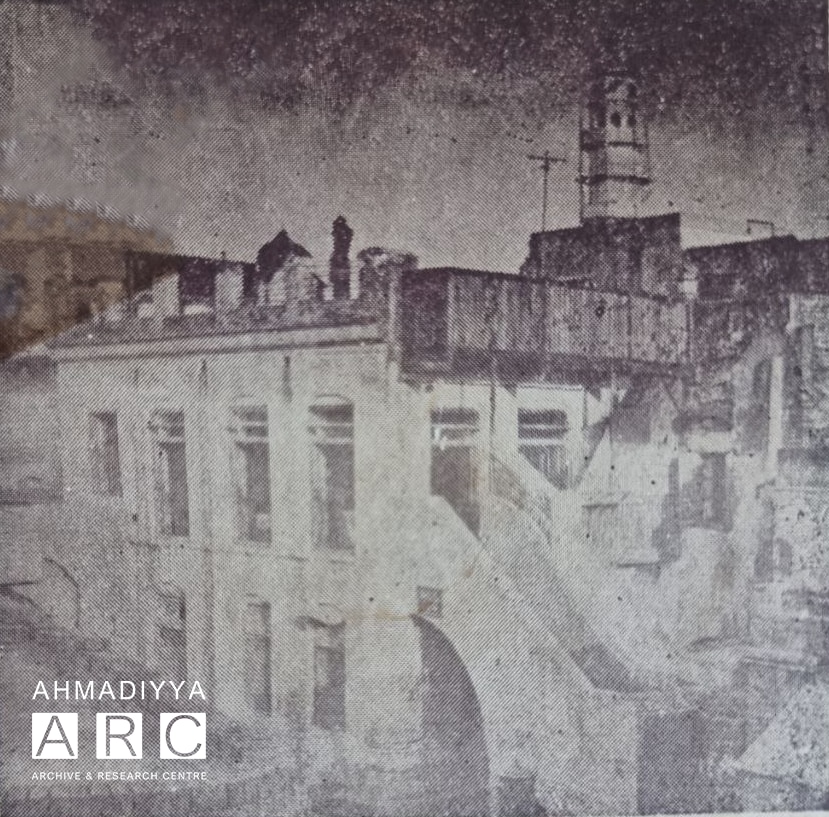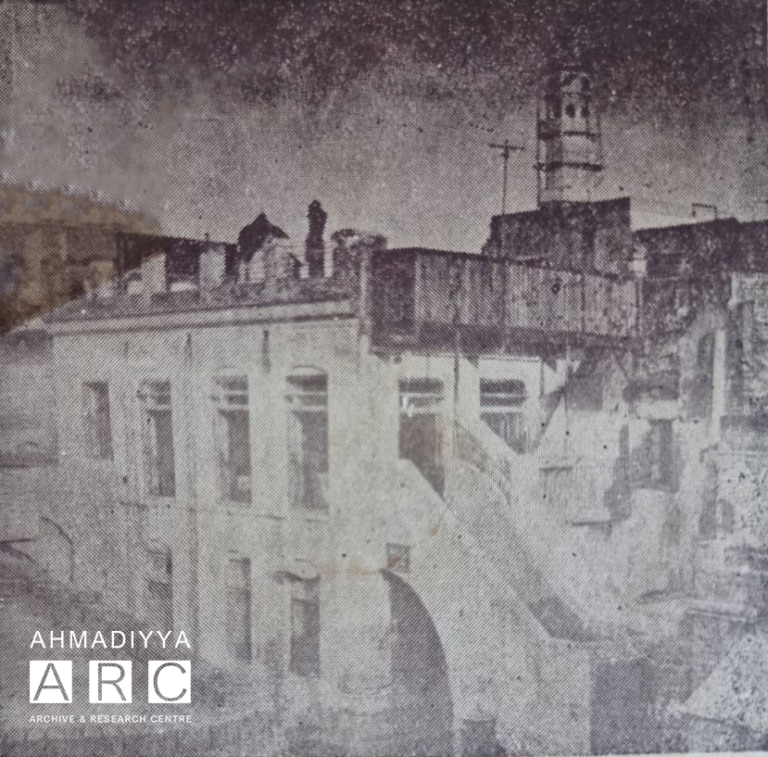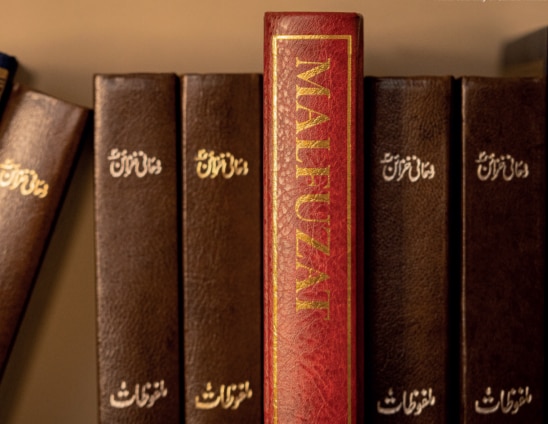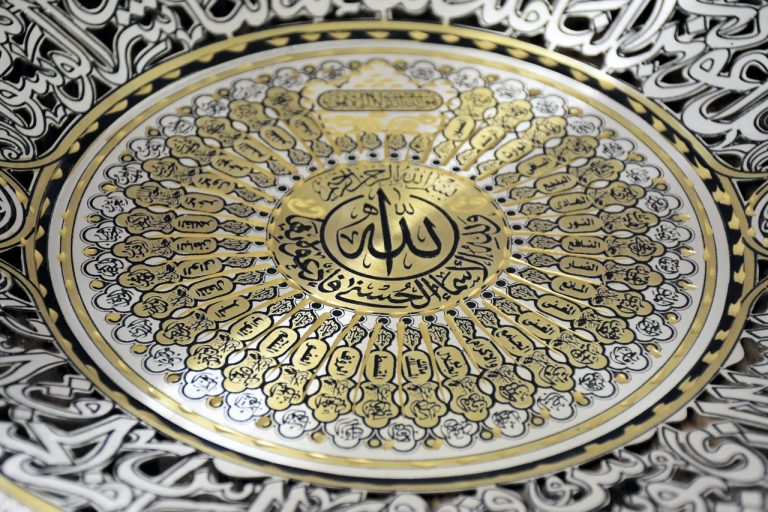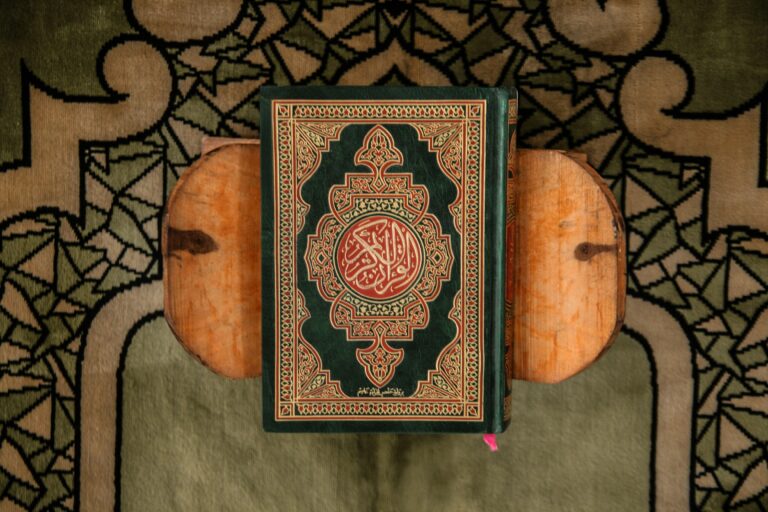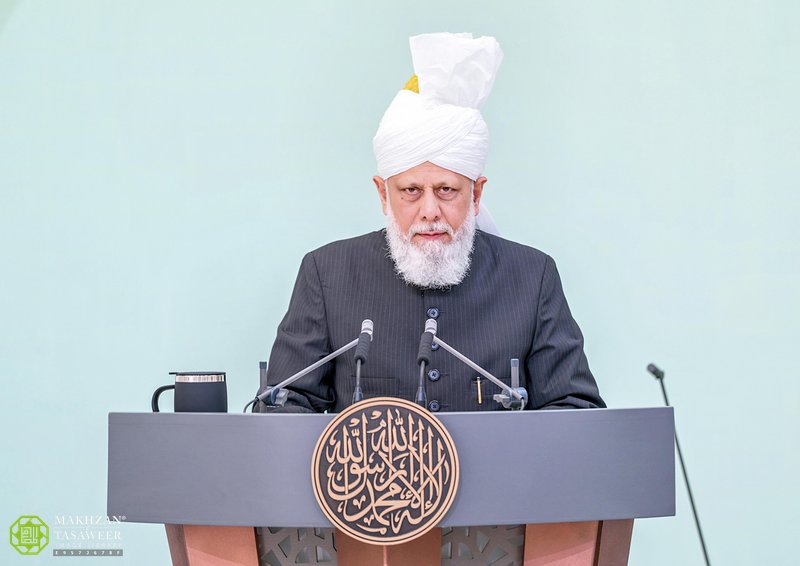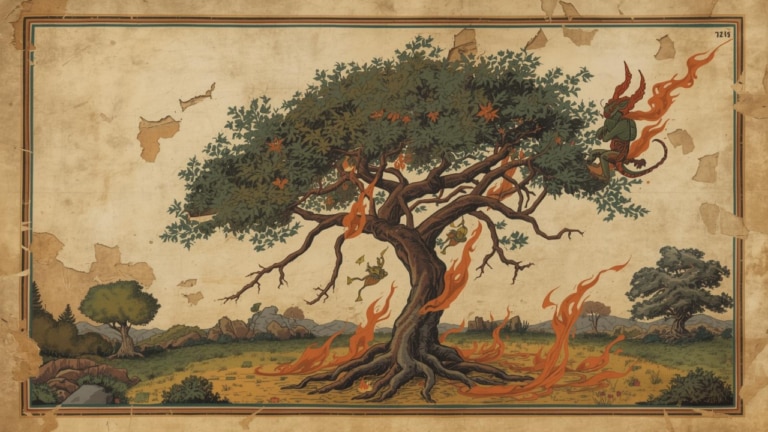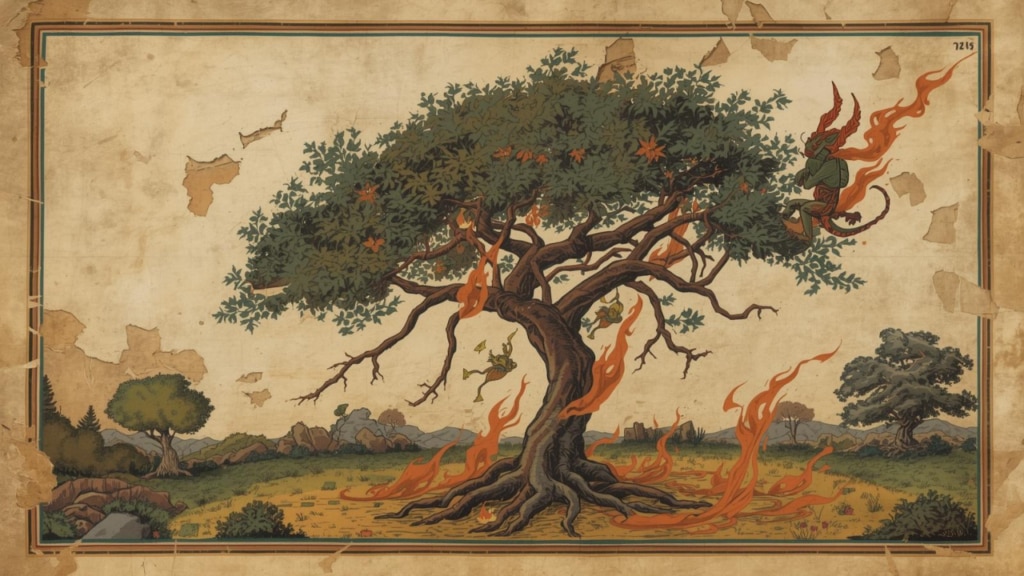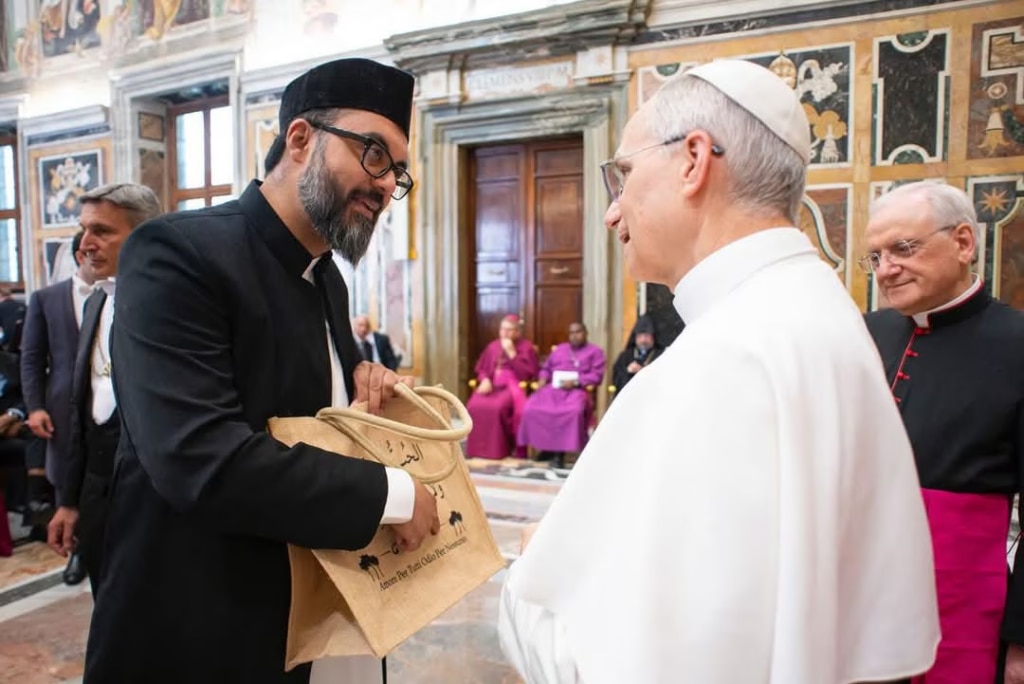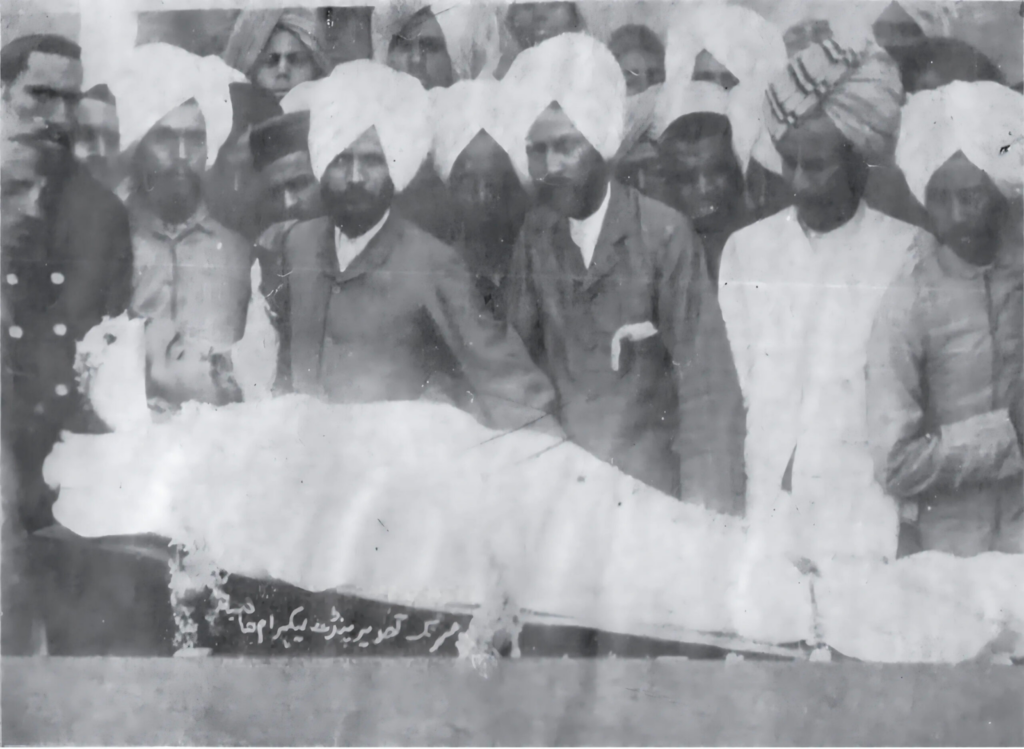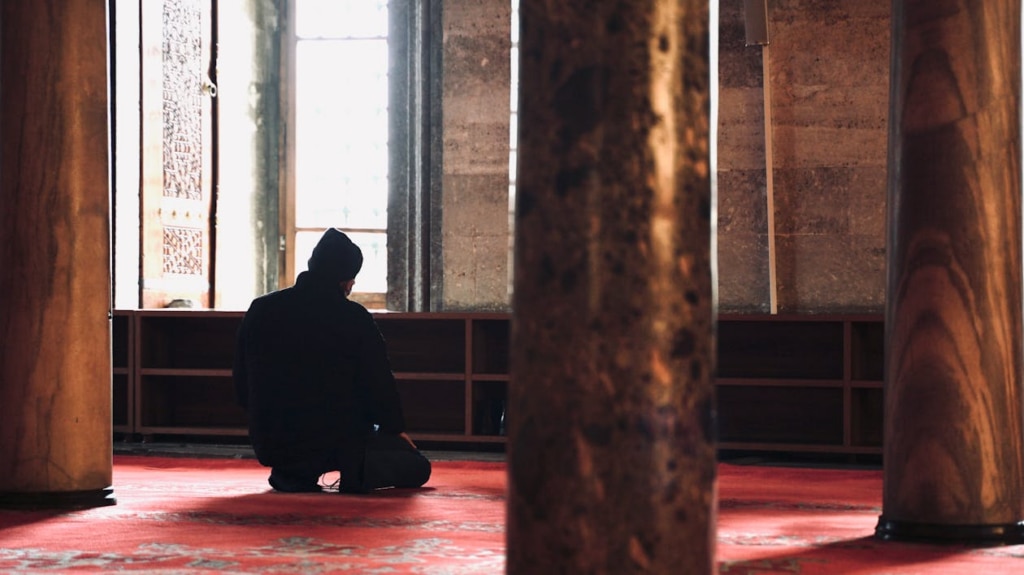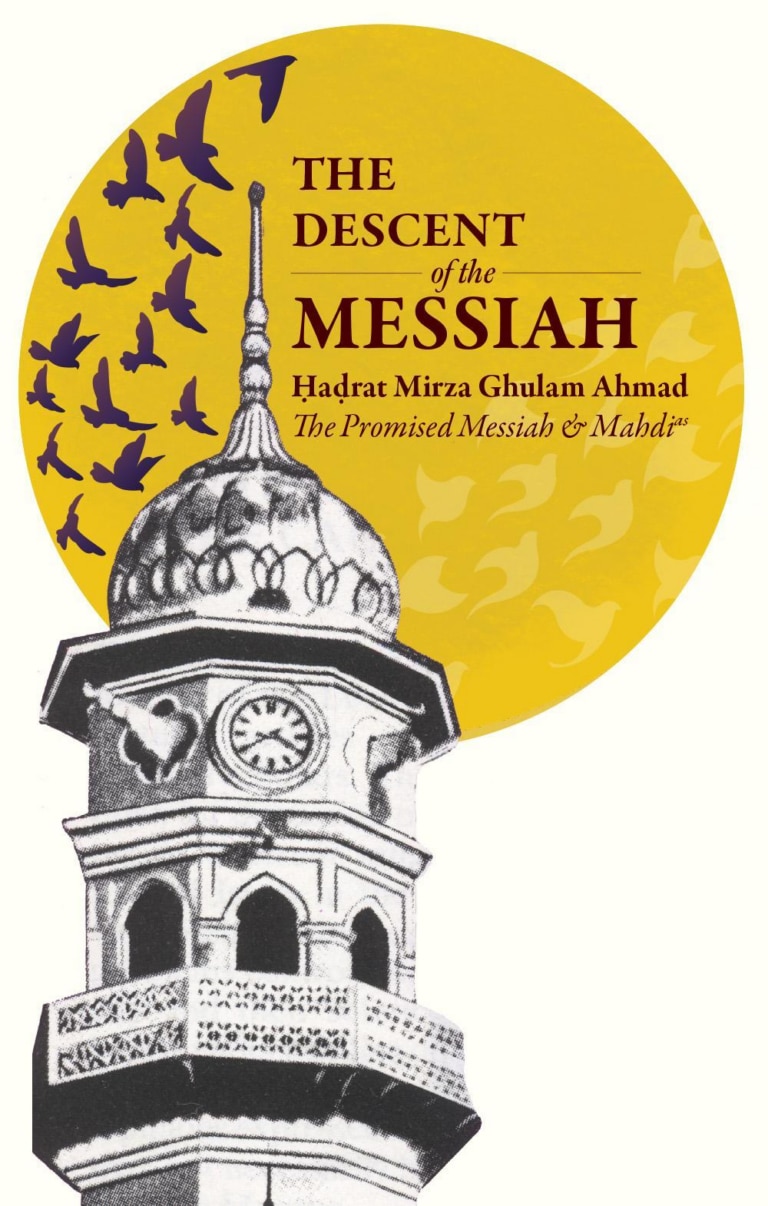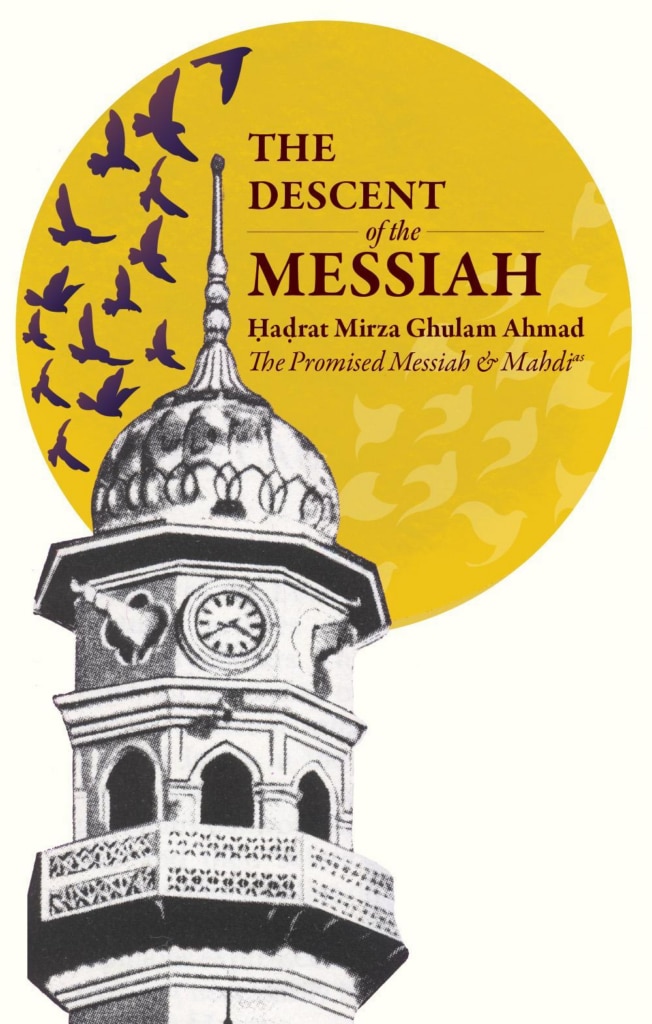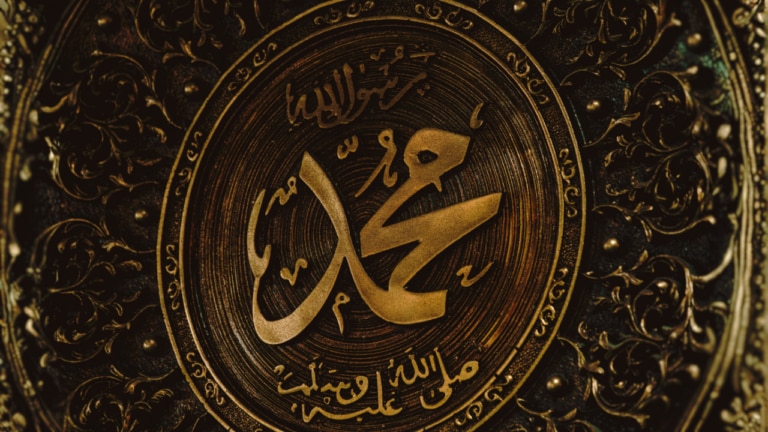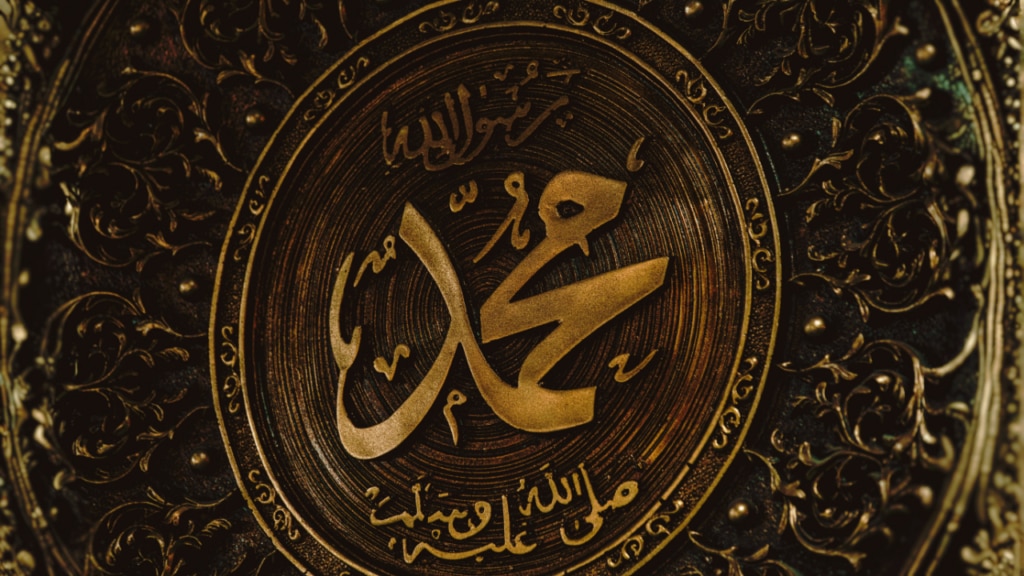Friday Sermon
12 December 2025
The art of spiritual invitation: Quranic guidance
After reciting the tashahhud, ta‘awwuz and Surah al-Fatihah, Hazrat Khalifatul Masih Vaa recited verse 126 of Surah an-Nahl:
اُدۡعُ اِلٰی سَبِیۡلِ رَبِّکَ بِالۡحِکۡمَۃِ وَالۡمَوۡعِظَۃِ الۡحَسَنَۃِ وَجَادِلۡہُمۡ بِالَّتِیۡ ہِیَ اَحۡسَنُ ؕ اِنَّ رَبَّکَ ہُوَ اَعۡلَمُ بِمَنۡ ضَلَّ عَنۡ سَبِیۡلِہٖ وَہُوَ اَعۡلَمُ بِالۡمُہۡتَدِیۡنَ
The translation of this verse is: “Call unto the way of thy Lord with wisdom and goodly exhortation, and argue with them in a way that is best. Surely, thy Lord knows best who has strayed from His way; and He knows those who are rightly guided.” (The Holy Quran, 16:126)
In this verse and in various other verses of the Holy Quran, wherever Allah the Almighty has instructed us to do tabligh [propagating the true message of Islam], He has guided us to preach in the best manner, and He has instructed us to advise people so that it may impact and benefit them. The efforts of those who propagate the message in accordance with this always bear fruit and yield results. By the grace of Allah the Almighty, they achieve success to a great extent. Thus, you should always remain mindful of this principle.
Nowadays, due to social media, people assume that propagation has become very easy. Those who are passionate about preaching, try to engage in it with great enthusiasm. There are others who even go to public places in countries where this is permitted – it is not permitted in Pakistan, etc., where we are not allowed to engage in any tabligh activity. These individuals, who are passionate about propagating the message, go to these places and fulfil their desire. This is a good thing; however, tabligh also has certain conditions and etiquettes that you should always bear in mind. Otherwise, it can be counterproductive, just as Allah the Almighty has also outlined in this verse.
Therefore, you must understand this before preaching, because some individuals leave a negative impact through their preaching. Instead of having a positive impact, it has a negative impact, and at times, non-Ahmadis are given the opportunity to raise objections against the Jamaat and its teachings – objections that are completely baseless.
Then there are some who are new to the field of preaching and believe that they possess strong arguments. But when they are unable to present any strong arguments and are unable to convince the opponents, they fall into despair. However, there is no need for despair. By the grace of Allah the Almighty, we have all the arguments. It is another matter whether a person himself does not understand them or is unable to articulate them.
By the grace of Allah the Almighty, the Ahmadiyya Muslim Jamaat speaks with wisdom and reason, and it does so in accordance with the teachings of Allah the Almighty, which He bestowed upon the Holy Prophetsa in the Holy Quran and upon which the Holy Prophetsa acted himself.
Thus, you should always remain mindful of the fact that if we are going to engage in preaching, we must do so in the best manner. On one occasion, the Promised Messiahas gave very important guidance regarding tabligh. He states:
“I was asked: What should be done to spread the teachings of Islam in America and Europe? Is it appropriate for some English-speaking Muslims to go to Europe and America and, through preaching and public speaking, make the objectives of Islam known to the people there?”
If a person knows the language, should they go out and preach? The Promised Messiahas continues, “Generally, I will never answer this question with a simple ‘yes.’”
This is a very important point. The Promised Messiahas explained that merely knowing English – or any other language – does not in itself give one religious knowledge. There are many other essential requirements. One must increase their knowledge, as I have already stated.
Even in various places here, people do engage in preaching, but they are not always able to give complete, knowledgeable and detailed answers to the objections raised by opponents. The same issue appears on social media, as I have already mentioned.
Thus, before any caller unto Allah or anyone who has a passion for propagating the message sets out in this endeavour, they must increase their own knowledge. Gather the common objections that are raised, the answers to which can generally be found in the Jamaat’s literature. If an answer is not there, then contact the tabligh team operating in that country and learn from them. Among them are people who possess knowledge, from whom assistance can be sought.
As the Promised Messiahas said: “I will never answer this with a simple ‘yes.’” Then he further states:
“I do not consider it appropriate at all that such people who are not fully acquainted with the teachings of Islam, who are completely unaware of its highest excellences, who are not thoroughly equipped to answer the critiques and objections of this era, and who are not taught by the Holy Spirit […].”
This, too, is a very essential requirement: that a person who preaches should be taught by the Holy Spirit and should have a living connection with Allah.
The Promised Messiahas states: “How can such people go as our representative?” This is not acceptable.
The Promised Messiahas states that his preachers must have a special relationship with Allah the Almighty so that Allah may support them. He states:
“In my opinion, the harm of such an endeavour is nearer and more likely than its benefit, except that which Allah desires.” (Izala-e-Auham, Ruhani Khazain, Vol. 3, pp. 516-517)
This means that if we proceed in this way, the benefits will be limited while the harms will be greater, except for what is willed by Allah. Certainly, there might be occasions of one or two isolated examples of benefit, but overall, the negative impact is more likely.
Thus, a preacher and a caller unto Allah must always keep in mind that when we engage in propagating the message, there are many requirements that must be fulfilled. Only when these are met can we preach effectively and correctly.
Regarding tabligh, the very first thing we must remember is that Islam is the only religion and the Holy Prophetsa is the only Prophet who brought that message from Allah, which is intended for the entire world. Allah sent the Holy Prophetsa as a bearer of glad tidings and a warner, as a prophet for all people, all nations and the whole world.
Yet, even today, if you look at history up to this day, the total Muslim population of the world is still less than a quarter of the world’s population. Why is this?
The reason is that the message of Islam has not been delivered with wisdom and has not been conveyed properly.
Muslims assume that they will spread the message of Islam through jihad, whereas jihad [with the sword] is permitted only in the case of the enemy attacking first. When Muslims were permitted to fight and raise the sword, it was only at a time when the disbelievers and non-Muslims attacked Islam and sought to destroy it.
At that time, Allah stated in Surah al-Hajj of the Holy Quran:
اُذِنَ لِلَّذِیۡنَ یُقٰتَلُوۡنَ بِاَنَّھُمۡ ظُلِمُوۡا وَ اِنَّ اللّٰہَ عَلٰی نَصۡرِھِمۡ لَقَدِیۡرُ
(The Holy Quran, 22:40)
“Permission to fight is given to those against whom war is made, because they have been wronged – and Allah indeed has power to help them.”
This is the most significant point. Then, history bears witness that Allah the Almighty helped the Muslims and showed His power and might. Thus, when Allah the Almighty granted permission for war, He granted it because injustices were taking place. However, the present age is not one which calls for this type of jihad; there is no war taking place for the sake of religion. Though various excuses are made under which Muslims are oppressed, it is not done in the name of religion.
Allah the Almighty and the Holy Prophetsa have declared the jihad of the Quran to be the greater jihad. (The Holy Quran, 25:53)
Thus, this is the general condition of Muslims, because of which even today, Muslims are less than a quarter of the world’s population. We should always keep this in mind and understand our responsibilities: that we, who have pledged allegiance to the Promised Messiahas must act upon this and develop a relationship with Allah the Almighty, learn His teachings, and, while acting upon them, convey this message to the world.
As I said in the beginning, some people work with good intentions, but they do not have adequate knowledge, or their relationship with Allah is not to the standard of a true caller unto Allah. As a result, they become disappointed.
It should always be remembered that the Holy Prophetsa also gave commandments and instructions regarding preaching. Many narrations are found in this regard. One narration is from Hazrat Ibn Abbasra that, “We were commanded to speak to people according to their intellect.” (Kanz al-Ummal, Vol. 5, Hadith 29268, Dar al-Kutub al-Ilmiyyah, Beirut, p. 105)
The foremost point in this narration is that people should speak to others according to their knowledge, intellect, temperament and religion. For example, if you wish to tell Muslims about the advent of the Promised Messiahas, then they should be informed through the Quran, sayings of the Holy Prophetsa and the books of their scholars.
Another point which the Holy Prophetsa has advised to those who preach – this is part of a longer narration – is that one should save oneself from the curse of the oppressed. This is another necessary point for those who engage in tabligh. Their own morals should always be righteous and exemplary, and the standard of the rights given to humanity should be such that they should never incur the curse of someone who is oppressed. Instead, they should always be the recipients of the prayers of the oppressed. When they become those who receive such prayers, then Allah the Almighty will place blessings in their efforts.
The Holy Prophetsa further stated, “One should save himself from this, because there is no barrier between the oppressed and Allah.” (Sahih al-Bukhari, Translated, Vol. 4, Kitab al-Mazalim wa al-Ghasab, Bab al-Ittiqa’ wa al-Hazar min Da’wah al-Mazlum, Hadith 2448, Noor Foundation, p. 449)
This point should always be kept in mind. While explaining the meaning of “goodly exhortation” mentioned in the verse that I recited, the Promised Messiahas states:
“God has made it incumbent upon us to remove false accusations with wisdom and goodly exhortation. God knows I never cease from civility and politeness in response to the opponents.” The Promised Messiahas always employed gentle speech. Describing his own condition, the Promised Messiahas states that he would respond gently and politely. That was always his principle, and Allah the Almighty is witness to it. The Promised Messiahas states, “I have always used soft and polite words.”
Thus, this is the method of preaching that we should adopt. Therefore, those who, while preaching, begin to use language similar to that of the opponents out of anger should remember that our preaching must remain within the limits of morality. The opponents have no arguments, which is why they use foul language. However, if we also use foul language, then this would mean that we also have no argument.
Some people say that the Promised Messiahas also spoke in a stern manner. Firstly, as I have mentioned, the Promised Messiahas did not act with harshness. With regard to any occasion where he spoke in a stern manner, the Promised Messiahas explains:
“Only in instances of extremely harsh and seditious words from the opponents am I forced to recourse to a small measure of judicious harshness so that my fellow Muslims might find their solace in it and suppress their ferocious anger (the Promised Messiahas had pure intentions in doing so). This harshness was not due to any selfish passion or provocation, but was used as a strategy purely in compliance with the verse:
وَ جَادِلۡھُمۡ بِالَّتِیۡ ھِیَ اَحۡسَنُ
“[‘And respond to them by a means that is most suitable for them.’]”
The Promised Messiahas states that any harshness from him was not as a result of personal malice. It was only to convey a lesson and to help simmer the frustrations of those Muslims who were quick to anger. Furthermore, the Promised Messiahas did so to suppress the emotions of those Muslims who were prone to becoming quickly impassioned. If the Promised Messiahas responded to the detractors, then the Muslims would not be susceptible to having any missteps or causing mayhem.
The Promised Messiahas continues, “And that too when blasphemy, insult and abuse by the opponents reached its limits.”
Any instance where the Promised Messiahas responded in a harsh manner was at a time when blasphemy, insult and abuse towards Islam and the Holy Prophetsa had exceeded all bounds.
The Promised Messiahas states:
“They used such foul and malicious words against our Lord and Master – the Chief of Creation, the Crown of Creationsa – as were likely to lead to a law and order situation. In such circumstances I made use of this strategy.” (Al-Balagh, Ruhani Khazain, Vol. 13, p. 385)
Thus, the Promised Messiahas, in his various writings, has actually forbidden the members of his Jamaat from using harsh language and has explained that wherever he has used certain words, it was out of absolute necessity. However, he has warned that we, the members of the Jamaat, must always remain kind in speech and never use harsh language. In fact, rather than using foul and abusive language like the opponents, the Promised Messiah’sas firmness denoted that he exposed certain aspects of their own history.
Then, presenting the commentary for this same verse, the Promised Messiahas states:
“The Holy Quran has given us the following commandment:
وَ لَا تُجَادِلُوا اَھۡلَ الۡکِتٰبِ اِلَّا بِالَّتِیۡ ھِیَ اَحۡسَنُ
This is a verse from Surah al-Ankabut, and it means:
“And argue not with the People of the Book except with what is best.”
The Promised Messiahas continues, “At another instance, God commands:
اُدۡعُ اِلٰی سَبِیۡلِ رَبِّکَ بِالۡحِکۡمَۃِ وَ الۡمَوۡعِظَۃِ الۡحَسَنَۃِ وَ جَادِلۡھُمۡ بِالَّتِیۡ ھِیَ اَحۡسَنُ
“This means that one should converse with Christians in a manner that is marked by piety and proves beneficial; adopting a method that is marked by wisdom and sincere counsel in a way that actually benefits them.”
This is also the same method that should be reflected in our approach to speaking to people from all kinds of religious backgrounds – whether Jewish, Christian, Hindu, or those Muslims today who have rejected the Promised Messiahas. One should use an approach which is both wise and invites them in a graceful manner.
The Promised Messiahas further states:
“But this route – that we should use the backing of the government or God forbid express rage and provocation – is (wrong and) counterproductive to our true objective. These are merely tactics of worldly conflicts and feuds; true Muslims and those acquainted deeply with Islamic teachings do not like them at all, for the conditions which are truly conducive to the guidance of humanity can never be brought about through them.” (Kitabul Bariyyah, Ruhani Khazain, Vol. 13, pp. 317-318)
In Tafsir-e-Kabir, Hazrat Musleh-e-Maudra has also elaborated the verse
اُدۡعُ اِلٰی سَبِیۡلِ رَبِّکَ بِالۡحِکۡمَۃِ
He has explained the meaning of “wisdom” from various dictionaries.
Hazrat Musleh-e-Maudra states that one meaning of hikmah [wisdom] is forbearance, or to speak to someone rationally and in a soft manner. Allah the Almighty has said this because a person who does not act in this manner will quickly become enraged and emotional. They will never be able to convey anything to another person. Similarly, another meaning for hikmah is prophethood. In light of this, the meaning of the verse would be “to call towards faith using the Divine Word.”
Thus, one should present arguments from the Holy Quran – the Word bestowed by Allah the Almighty. One should not present futile arguments which they create themselves. Hazrat Musleh-e-Maudra states with a great sense of longing that if Muslims were to understand this principle, they would overcome Judaism and Christianity. Our sole weapon is the Holy Quran, regarding which God Almighty states:
وَجَاھِدْھُمْ بِہ
[“And fight against them by means of it (the Quran).]
Take up the sword in the form of this Quran and go forth in the world for jihad. But it is a matter of regret that today, Muslims or the wealthy Muslim nations possess every worldly means; yet the only thing missing is this very “sword”, which Allah the Almighty has commanded to take up. That is to go forth with the arguments of the Holy Quran for the purpose of propagating the message.
There are many Muslims countries that possess oil wealth and operate countless businesses. There are 54 Muslim countries, but the jihad that ought to have been waged with the teachings of Islam has not been carried out in the manner it should have been.
Then Hazrat Musleh-e-Maudra further states that another meaning of hikmah is that which restrains one from ignorance. In light of this, the meaning of the verse would be, “You should speak in such a manner that the other person can understand, and through which their misunderstanding may be removed.” In other words, the discourse should be such that it eradicates ignorance and is something that the addressee can comprehend. Thus, it is recorded in a Hadith:
امرنا رسول اللّٰہِ صلی اللّٰہ عَلیہِ واٰلِہ وسلم ان نکلِم الناس علی قدرِ عقولھِم
“The Messengersa of Allah commanded us to speak to people according to the level of their understanding and intellect.”
I have mentioned this narration earlier as well. When delivering a lecture, some people use complex words and terminology in order to impress others. Such speeches may well overawe the ignorant, but no one benefits from such speeches.
This is what happens here as well. When we speak with non-Ahmadis, or at times with certain scholars, they too adopt this style; but if we were to speak in this manner, it is unclear whether they would benefit, but the general public will certainly fail to grasp the essence of what is being said. They become engrossed in using complex words. When matters are explained in simple language, it may be that among the listeners, there are many who, through plain speech, understand the point, and instead of listening to those who are engrossed in using such terminologies, they may prefer to listen to you and pay greater attention.
Hazrat Musleh-e-Maudra further states that speech in accordance with truth is also termed hikmah; this too is recorded in the lexicon. According to this meaning, the verse would imply that one should speak in a manner that is truthful and in accordance with reality. Whilst believing that they are calling people to the true religion, some also state things which are incorrect. At times, people use exaggeration in their preaching, whereas there is no need for exaggeration in tabligh. One should keep the teachings of the Holy Quran before them, keep in mind the sayings of the Holy Prophetsa and the writings of the Promised Messiahas, and then go to preach. Thereafter, they should leave the matter to Allah.
Hazrat Musleh-e-Maudra states that it is wrong to present incorrect things. When facing an opponent, say only that which is true. Whilst giving guidance to others, do not fall into error yourselves. As Allah the Almighty states:
لَا يَضُرُّكُمْ مَّنْ ضَلَّ اِذَا اھْتَدَيْتُمْ
(The Holy Quran, 5:106)
That is, if you remain firm upon guidance, then do not concern yourselves whether another goes astray or not; another’s misguidance will not harm you in any way. Safeguard yourselves. That is, do not commit any such act that is sinful or wrong under the impression that through it you will guide another. When your own guidance and the guidance of another come into conflict, then at such a time give precedence to safeguarding your own guidance, and leave the guidance of the other to God, for Allah the Almighty does not desire that a believer become a disbeliever and a disbeliever become a believer. He Himself desires to grant guidance to others.
Then, while further expounding upon the word hikmah based on the lexicons, Hazrat Musleh-e-Maudra says that hikmah also refers to speech that is appropriate according to the time and occasion. According to this meaning, the verse would imply that whilst preaching, one should speak in a manner suited to the moment. If, through certain arguments, there is a risk of the opponent becoming provoked and angered, and there is a danger that in such a state he will not listen to your words, then it is not appropriate that you needlessly incite him. Present other arguments before him which he can listen to calmly.
In other words, before speaking, first assess the temperament of the other person. If you provoke them unnecessarily, there will be no benefit in such preaching. Merely to proclaim one’s own greatness and to assert without presenting any argument that “we are truthful, the Promised Messiahas is true, Islam is true, and the Holy Prophetsa is indeed a Prophet for all mankind” will only cause agitation. Speak with wisdom so that people may also grasp the meaning of these matters.
Thus, this is a great excellence that Allah the Almighty has, in a few words, set forth all the fundamental principles of preaching. Indeed, this is the very method which, if we as preachers adopt and act upon, will – insha-Allah – lead us to success.
“Goodly exhortation” refers to such discourse as softens hearts and leaves a deep impression upon them. Through this injunction, Muslims have been directed that mere dry argumentation is not sufficient.
Today, it is the responsibility of the Ahmadiyya Muslim Jamaat to convey this message of Islam to the world. Whosoever is engaged in discussion, whether with an opponent or a counterpart, should be made to understand that religion does not consist solely of dry argumentation, but that there are various aspects of exhortation which ought to be practised.
Furthermore, it has been commanded that speech which appeals to the sentiments should also be employed, while wisdom and “goodly exhortation” should always remain integral. By the use of the word hasanah [good], it has been clarified that false zeal should not be incited, as ignorant clerics in our time unjustifiably provoke people against righteousness.
Then Allah the Almighty says:
وَجَادِلۡھُمۡ بِالَّتِیۡ ھِیَ اَحۡسَنُ
[“And argue with them in a way that is best.”]
This teaches that even while engaging in debate, one must remain mindful of the fact that among the various arguments available, the strongest argument should be established as the foundation and central point, and all other arguments should be kept subordinate to it. For if a supporting argument collapses, it does not weaken the principal argument; whereas if the central argument itself is weak, even the strongest supporting arguments prove of no use.
Thereafter, Allah the Almighty declares:
اِنَّ رَبَّكَ ھُوَاَعْلَمُ بِمَنْ ضَلَّ عَنْ سَـبِيْلِہٖ وَھُوَاَعْلَمُ بِالْمُھْتَدِيْنَ
“Surely, thy Lord knows best who has strayed from His way; and He knows those who are rightly guided.”
Through this, it has been made clear that you should continue to preach in an excellent manner; yet if people do not accept, you should not fall into despair by concluding that you do not know how to preach. It is possible that there is no deficiency in your preaching, but rather that the heart of the addressee has become so rusted due to his sins that Allah the Almighty does not open the door of guidance for him.
In short, one must remain fully engaged in preaching; this is the essential matter. Our duty is to continue conveying the message, whereas drawing results and creating acceptance in hearts is the work of Allah the Almighty. (Tafsir-e-Kabir, Vol. 4, pp. 271-274)
The Promised Messiahas states:
“Many so-called Muslim clerics and scholars stand on pulpits and preach to others, declaring themselves to be representatives of the Holy Prophetsa and the heirs of the Prophets. They exhort people to refrain from arrogance and safeguard themselves from evil deeds, but one can gauge the quality of their own actions and behaviour by the degree to which their words have an influence on you.”
Those who are pious in nature would never be affected by such people. If the preaching of those clerics has no impact on your heart, then you should also assess your own condition. If you speak in a like manner, what impact will your speech carry? You can use this to assess yourself: If you are preaching, you should first reform your own actions and form a relationship with God. Only when you achieve this will your preaching become correct, successful and fruitful. The Promised Messiahas continues:
“If these people also possessed the power of action and first acted upon the things that they preach to others, what need was there for the Quran to say:
لِمَ تَقُوۡلُوۡنَ مَا لَا تَفۡعَلُوۡنَ
[“Why do you say what you do not do?”] (The Holy Qur’an, 61:3)
“This verse itself demonstrates that there have always been such people in the world who do not act in accordance with the counsel they give others. Such people exist even today and shall exist in the future.”
Thus, this is proof that there will be people who will – at times – convince with their arguments whilst preaching, but when observing their practical examples, the same people will turn away. If, however, you desire to preach, then ensure that your words and actions align. Only then will your preaching bear fruits and become blessed. The Promised Messiahas continues:
“Take heed of my words and remember well that a person’s speech can never influence others if it does not spring from a sincere heart and if it is bereft of the power of action. This is a great proof in favour of the truthfulness of our Noble Prophet, peace and blessings of Allah be upon him. The success and influence that he commanded over the hearts is unparalleled in the history of the children of Adam. All of this was achieved because there was perfect harmony between the words and actions of the Holy Prophetsa.” (Malfuzat [English], Vol. 1, pp. 65-66)
Thus, if we are to undertake the task of preaching and conveying the message, we must adopt this very method. We must act upon the teachings of the Holy Prophetsa and establish a special bond with Allah the Almighty.
Elaborating further upon the verse:
لِمَ تَقُوۡلُوۡنَ مَا لَا تَفۡعَلُوۡنَ
[“Why do you say what you do not do?”], the Promised Messiahas states elsewhere that “A believer must not act duplicitously. Always keep your words and actions in order and exhibit harmony in both. Just as the companions manifested in their own lives, you too must follow in their footsteps and demonstrate examples of truth and loyalty.” (Malfuzat [English], Vol. 2, p. 88)
Only then will your preaching endeavours be blessed. Merely assuming that the availability of modern media alone will enable effective preaching cannot produce true results.
Explaining the verse:
وَجَادِلْھُمْ بِالَّتِيْ ھِىَ اَحْسَنُ
[“And argue with them in a way that is best,”] the Promised Messiahas once stated:
“One who is to be admonished should be advised through speech. (It is important to advise with words.) The same message, when expressed in one manner, can turn a person into an enemy, and when conveyed in another manner, can turn him into a friend. (The words may be the same and the message identical, yet if delivered in a certain manner, they can create hostility, whereas when expressed with gentleness, it fosters friendship.) Therefore, conduct yourselves in accordance with ‘and argue with them in a way that is best.’ It is precisely this style of discourse that God has named ‘wisdom’. Hence, He says:
یُؤۡتِی الۡحِکۡمَۃَ مَنۡ یَّشَآءُ
(Malfuzat, 1984, Vol. 5, p. 127)
That is, “He grants wisdom to whomsoever He pleases.” (The Holy Quran, 2:270)
The Promised Messiahas further states:
“To protect Islam and manifest its truth, the foremost aspect is that you become exemplary true Muslims.” (Malfuzat [English], Vol. 8, p. 237)
This is the first and most essential point.
There is no merit in merely saying that we have preached or conveyed the message. Alongside delivering the message, we must also see what transformation we have brought about within ourselves. Simply conveying the message is not enough, nor should one feel pride merely in the fact that we are Ahmadis, or that we have conveyed the message, or that our names are listed among those who invite toward Allah – no.
The Promised Messiahas said that the first and most important aspect is that you must become living examples of true Muslims. The second aspect is that you spread its beauties and excellences worldwide.
Indeed, when you become such examples, then spread the message. Thereafter, you will witness revolutionary changes; such revolutionary changes, which even the wealthy could never bring about, will come about through you.
Regarding those who preach for a few days and then complain that no results are visible, the Promised Messiahas said:
“Think before you speak and say useful things concisely. Lengthy arguments are of no benefit. Say something brief sometimes that should go straight into a person’s ear, and then if the chance arises again, do so again (this is the way of preaching with perseverance).
“In short, slow and steady delivery of the Message should continue, and you should not tire of it.”
Our task is never to tire. It should not be that we put up a camp or a stall for a day, preach a little and then consider the work finished.
The Promised Messiahas states, “These days, the love of Allah and a connection with Him is considered by people to be a sign of insanity. If the Companionsra of the Holy Prophetsa, were to be present these days, people would call them insane, and they would consider these people to be infidels. Spending day and night engrossed in vain discourses and all manner of heedlessness, preoccupied with worldly affairs, makes one hard-hearted. The spoken word takes time to have an effect.”
The world today is even more deeply drowned in materialism than it was in the Promised Messiah’sas time. Such people, immersed in worldly concerns, are hard to impact.
Therefore, do not think that our purpose is only to argue with this cleric or that scholar and convince him through debate. Nor is our purpose to preach Islam to those who raise allegations or argue. Our aim is that the true message of Islam reaches the world and that the world becomes convinced that in this age, the Promised Messiahas who was to come, has indeed come.
We must strive for this, not by engaging in endless arguments or lengthy question-and-answer sessions, but through preaching by finding effective ways to convey the message of truth to as many as possible and to reform them.
This was also the method of the Noble Companions. They preached, but with wisdom. Since people today are so absorbed in worldly concerns that getting through to them has become difficult, it requires great wisdom to reach their hearts.
When our practical examples reflect the same message we proclaim, then attention will naturally be drawn towards us.
The Promised Messiahas gave an example from his own life of a government revenue officer who used to argue with him. The Promised Messiahas gave him some advice. He says: “He began making fun of me, but I said in my heart that I too will not leave you.”
He remained persistent in counselling him. Perhaps the Promised Messiahas saw in him some trace of a receptive nature. In any case, the Promised Messiahas said, “I persisted and at last, after ongoing talk, the time came when the same person who was laughing at my expense began to weep and wail.”
The Promised Messiahas says, “Sometimes a righteous person appears to be callous.”
Such a person may seem unfortunate, yet he is inwardly blessed. If you persist with him, addressing him according to his understanding and with wisdom, he will eventually comprehend.”
The Promised Messiahas continues:
“Remember that every lock has a key. And there is a key for speech as well, and that is to speak appropriately. Just as I said concerning medicines, that some medicine is of benefit to someone and another is of benefit to someone else, similarly, every statement can be of benefit to a specific person when said in a particular way. It should not be the case that one should talk in the same way with everyone. The speaker should not mind someone calling him bad, but rather keep discharging his duty without getting tired. The rich have very delicate dispositions, and they are also apathetic to the world and cannot bear to listen to too many things. They should be admonished on some occasion in some way with great care and gentleness.” (Malfuzat [English], Vol. 10, pp. 152-153)
One must preach to every class, both to the rich and the poor.
For the rich, the approach to preaching mentioned by the Promised Messiahas is this: when the occasion is suitable, speak a word of counsel softly and wisely.
The Promised Messiahas then gave the example of Ibn Arabi, saying that he wrote:
“God Almighty admonished Mosesas to be gentle in dealing with Pharaoh. The reason for this, indeed, was that Allah the Exalted knew that he would ultimately come to believe. Accordingly, the word آمنت [‘I believe’] issued forth from his own mouth.” (Malfuzat [English], Vol. 10, pp. 290-291)
When he was drowning, he uttered that very word, saying آمنت [‘I believe’].”
Hazrat Musleh-e-Maudra also explained the wisdom of preaching through the example of the Prophet Josephas.
He writes that when the Prophet Josephas was imprisoned, two other men were also confined with him. He displayed remarkable wisdom in turning their attention towards himself. Fearing that they might become restless if he preached to them, he first reassured them, saying that he would not take much of their time and would finish before their food arrived. He did this so that they would not grow uneasy and would listen attentively. It seems that the Prophet Josephas rarely got the chance to preach, so when those two prisoners asked him for the interpretation of their dreams, he saw it as a precious opportunity. He thought, “If I deliver my message before fulfilling their request, they will be compelled to listen.”
Hazrat Musleh-e-Maudra then mentions another example, which is of the Holy Prophetsa. The first example was of the Prophet Josephas, and the second example was of the Holy Prophetsa.
In the early days of his claim, when the Holy Prophetsa wished to convey the message of Islam to the people of Mecca, they would avoid him and refuse to listen. So he arranged a meal and invited them, intending to preach during the gathering. However, they got up and left without hearing him. The next time, the Holy Prophetsa devised another plan. He invited them again, but this time, before the food was served, he announced his claim and conveyed his message. Since they were waiting for the meal, they were compelled to remain seated, so he was able to convey his message.
From this verse, we also learn about the method of admonition employed by the Prophets. Thus, in following them, one must always bear in mind that when delivering exhortation and counsel, the point should indeed be conveyed, yet it should not be burdensome upon others. In other words, a principle has been established whereby one should speak the truth but express it in such a way that it does not become a burden for others. Therefore, one should speak with wisdom and always keep this principle in mind. (Tafsir-e-Kabir, Vol. 3, pp. 312-313)
At a time when the very notion of Europe accepting Islam could not even be imagined, the Promised Messiahas had his writings translated into English and distributed throughout Europe. And when Allah the Almighty granted him a Jamaat, the Promised Messiahas instructed its members that jihad is an essential part of Islam and can never be abandoned. Just as prayers, fasting, Hajj and Zakat are commandments of Islam that must be acted upon in every age, so too is jihad among those deeds that are necessary in every era, and which must always be implemented. Thus, this is the true manner of jihad. What does that look like in this era?
Ahmadis are accused of neglecting jihad. Indeed, we do undertake jihad, but the manner in which it is carried out has changed. There are many debates in this regard. Non-Ahmadi Muslims accuse us of abandoning jihad, alleging that we deny it, whereas in reality, the work we are carrying out is in fact jihad. We are doing so by preaching and conveying the message, by propagating Islam and Ahmadiyyat throughout the world, and by informing people of the true teachings of Islam through Ahmadiyyat. We have missions in Africa, Europe, South America, [North] America, Australia, and the islands. What is the purpose of all of this? This is, in fact, the jihad that we are undertaking. Therefore, it is incorrect to say that we do not believe in jihad. Indeed, as I have said, the manner in which jihad is carried out has changed.
The Promised Messiahas stated that now your jihad is through the pen. The tips and nibs of your pens are the tips of the swords which you must use to undertake jihad. This is the era of spreading the faith, and this is the form of jihad that is necessary for it. Thus, engage in jihad through the pen in this manner. This principle must always be kept in mind, and we must explain to the world that their arguments against us, that the person who claimed to be the Promised Messiah is not true, or that the Promised Messiah was not meant to come in this way, are all false arguments.
We must properly explain to them what has been stated in the Holy Quran and the Hadith. On the one hand, they accept that the Messiah and Mahdi is destined to come, yet on the other hand, they reject him. If we allow ourselves to be drawn into their lexical debates and disputes, there will be no benefit. We should tell them that our true objective is to establish the supremacy of Islam throughout the world, because the Holy Prophetsa came as a Prophet and Messenger for the entire world. Today, we make up less than a quarter of the world’s population. Until we bring the world under the banner of Islam, how can we claim to have accomplished anything significant? Today, it is our task to undertake this form of jihad and only then will our jihad be successful. Otherwise, what benefit can come from the type of jihad desired by other Muslims? Has it yielded any results? Certainly not.
Thus, every Ahmadi must undertake the jihad which has been explained by the Promised Messiahas, not the jihad of the sword from which the Muslims of today are deriving no benefit and on account of which they are suffering humiliation at every turn. Instead, one must proceed with wisdom, intelligence, and with the various other aspects which I have mentioned. One must employ wise methods of preaching and establish a living relationship with Allah.
Missionaries must also tend to the moral training of the members of the Jamaat and thus prepare an army that will undertake this jihad. And I say to the missionaries that a great responsibility rests upon them. Their duty is not only to tend to the moral training of the Jama‘at, but along with that training, they must connect the members of the Jamaat with Allah the Almighty. Where they instil this connection, they must also increase their knowledge and prepare them for this jihad. Only when missionaries do so will they fulfil their pledge.
Once, whilst advising missionaries, Hazrat Musleh-e-Maudra explained how one should go about preaching and what the qualities of a missionary ought to be. In fact, Hazrat Musleh-e-Maudra imparted such guidance to missionaries on two or three occasions; those discourses are quite lengthy, and I will mention them if an opportunity arises. For now, I will present a brief summary of the essential points.
The first point is that a missionary must purify himself. He should strive for his own purification and then strive to bring about the same in the Jamaat. He should make it a habit to offer the pre-dawn voluntary prayer (Tahajjud), and he should direct the Jamaat toward worship. He should study the Holy Quran deeply and engage the members of the Jamaat in its study as well. If one wishes to prepare those who call unto Allah, then one’s own conduct should be such that he engages in the remembrance of Allah and urges members of the Jamaat towards it as well.
Hazrat Musleh-e-Maudra also drew attention to the fact that having a personal library is very important, because it instils a passion for reading. Today, although the trend of reading physical books has decreased, there are many books and a vast amount of Jamaat literature available on the Alislam website. Those who are not able to purchase books or who do not naturally develop such an interest in this regard should at least take advantage of this resource and allocate specific time for reading.
Likewise, a missionary should have complete and utter trust in Allah. One should not be overly confident in their own self. One must regard Allah the Almighty as the source of all things, for indeed it is through Him alone that we attain everything.
A missionary’s relationships with people should also be improved. Our public relations are often weak, and because of this, our scope for propagating the message narrows. We must give attention to this as well. Very few people pay attention to building relationships with others. When we grow in this regard and encourage our teams to grow as well, our avenues for preaching will continue to expand.
Then, one must also possess the courage to boldly refute falsehood. This, too, is a great quality that a missionary should have and one which he must then instil within the Jamaat as well. One must develop consistency. It should not be the case that a person performs virtuous deeds and displays enthusiasm for preaching or worship only for a few days and then forgets about these things. No. Instead, not only should a missionary remain steadfast upon these matters, but he should also develop the same spirit within the Jamaat. When missionaries act upon these things themselves, this spirit will surely take root among members of the Jamaat as well.
Only then will such callers unto Allah be prepared who can respond to people in the correct manner, and those who will not incur humiliation. (Nasa’ih Muballighin by Hazrat Mirza Bashir-u-Ddin Mahmud Ahmadra, Khalifatul Masih II, pp. 1-13 and 20)
As the Promised Messiahas has stated, having learned a language is not enough to know how to properly propagate the message; the true essence is knowledge.
Furthermore, a missionary must develop the habit of deep reflection. A missionary must also have a living relationship with Allah the Almighty. These are the various qualities that a missionary should not only possess himself, but he should also strive to teach the same qualities to the Jamaat as well. If this is achieved, then we can bring about a great revolutionary change. It is then that we will be able to raise the flag of the Holy Prophetsa throughout the world; and only then can we acquaint the Muslims with the reality of the Promised Messiah and Mahdi’sas advent and invite them to pledge allegiance to him.
Thus, there are many responsibilities which we must focus on fulfilling, and there is a great need for this. Our missionaries have a very important role to play in this regard.
May Allah the Almighty grant everyone the ability to fulfil this responsibility, and may He enable the callers unto Allah to acquire true knowledge, establish a relationship with Allah the Almighty and convey the message of Islam and Ahmadiyyat to every corner of the world.
(Official Urdu transcript published in the Daily Al Fazl International, 2 January 2026, pp. 1-8. Translated by The Review of Religions.)
